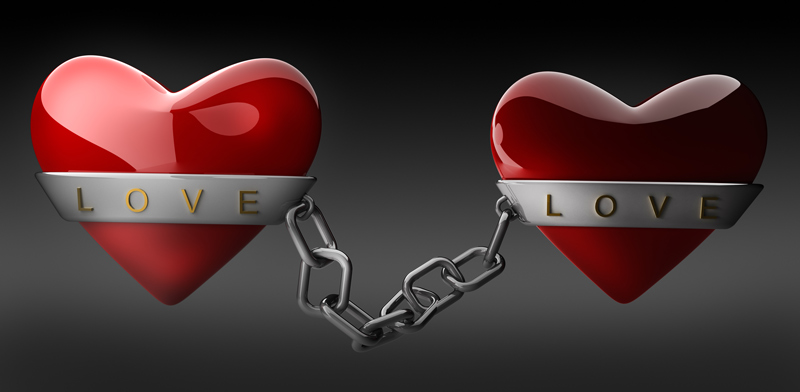
Addictive Relationships and Trauma Bonds
Are you stuck in a cycle of painful relationships? Do you keep attracting the same type of partner, struggling with deep emotional connections, or feeling unable to leave unhealthy relationships? If so, you may be in an addictive relationship or a trauma bond.
Ever asked yourself :
- Why can’t I find my soulmate?
- How come I keep attracting the same type of person?
- Why do I run when things get too serious?
- Why am I afraid of sex?
- Why am I obsessed with sex?
- Where does my fear of intimacy come from?
- How do I stop having failed relationships?
These patterns are more common than many realise, and breaking free from them requires self-awareness, healing and a commitment to change. Recognising these dynamics is the first step toward building healthy, conscious relationships—ones based on genuine connection rather than past wounds.
In past blog posts, I’ve raised the idea of the conscious and the unconscious relationship. Under the category of unconscious relationships, I want to pay particular attention here, to two genres: addictive relationships and trauma bonds.
What is an Addictive Relationship?
An addictive relationship is what’s known as a process addiction, as opposed to a substance addiction.
An addictive relationship is a compulsive emotional attachment that can feel impossible to break, even when it’s unhealthy. Just like addictions to substances or behaviours, relationship addiction is driven by deep emotional needs and unhealed wounds.
Some people become addicted to specific types of partners or dynamics. They are drawn to relationships that create intensity, emotional highs and lows, or recreate unresolved childhood traumas. The relationship itself becomes a coping mechanism for life, providing emotional relief but ultimately reinforcing destructive cycles.
As with substance addictions, such as sugar, alcohol, drugs; or process addictions, such as gambling, work or risk taking, there are certain characteristics that all addictions share, and if these are present, you can be pretty sure that you are in an addictive dynamic.
Three of these characteristics are what I call the 3D’s:
1. Drug of Choice
- Your partner isn’t just a person; they’re your emotional fix.
- They create intensity that mirrors an unresolved childhood dynamic.
- The relationship chemically alters your mood, making it hard to walk away.
Your partner is your drug of choice and they are usually someone that creates intensity in their life and reproduces an unresolved childhood drama for them. To qualify as a drug of choice, the person and what they bring into your life must chemically alter your mood beyond just normal, in-love feelings.
2. Denial
- You downplay red flags and make excuses for their behaviour.
- You sacrifice your own needs to keep the relationship going.
- You convince yourself that things aren’t that bad—even when they are.
The relationship you’re in is either unsatisfying or all consuming – but you pretend it’s just fine or that things aren’t that bad. This means you can run excuses in your head for being unavailable to other aspects of your life or if the relationship is unfulfilling, you can make excuses for being miserable. While many of your reasons and observations may be true, if you’re a relationship addict, then you will subjugate your own needs and rights in favour of understanding the wound of the person you are addicted to ,which is entirely different to healthy adult understanding.
3. Deception (of self and others)
- You hide the truth about the relationship from family and friends.
- You suppress your real feelings to avoid conflict.
- Authenticity feels like a threat, so you play a role instead of being yourself.
You cover up, to friends or family, what’s really going on in the relationship and how you really feel. Lots of pretending, hiding, secrecy or selective sharing that’s all designed to keep the person you’re addicted to in your life. You lie to the person you are addicted to as well, about your real feelings, because you need to manage their reactions to you. Authenticity can be a threat to getting what you want from them, so you sacrifice being real, in favour of securing your drug of choice.
Other Characteristics of Relationship Addiction:
- Obsessing over your partner – Constantly thinking about them, even at the expense of your own life goals.
- Fear of abandonment – You’d rather lose yourself than lose them.
- Highs and lows – The relationship is a cycle of intense passion, followed by painful withdrawal.
Preoccupation
You lose focus on other things and lose interest in other activities. You constantly run over, in your head, what is and isn’t working with your relationship, or you incessantly talk about it to your friends to a point where they’re rolling their eyes with your obsessive, one subject repertoire. The irony is that you have to scheme to get that which a healthy relationship gives you, naturally.
Sourcing Supply and Protection of Supply
Every addict needs to source and protect the supply of their drug of choice. The relationship addict is no different. So, behaviours like – stalking your partner, watching their every move, trying to work them out, are par for the course. This is vital to make sure they don’t leave you. The call cry here, being: “I’ll abandon me, so long as you don’t abandon me”.
Attempts to control followed by loss of control leading to powerlessness and the inability to leave, despite negative consequences.
The addictive relationship usually has highs and lows, drama and conflict, ups and downs, like any other addiction. You get hooked then you go through withdrawal symptoms. You try and do anything to avoid the excruciating withdrawal pain by making them happy, placating them or even fighting with them, but the dynamic of ups and downs continues and intensity is substituted for intimacy.
If a relationship causes you more harm than good, yet you feel unable to leave or change the dynamic, it may be an addiction, not love.
What is a Trauma Bond?
A trauma bond forms when someone becomes deeply attached to a partner who feels familiar and yet is emotionally, psychologically, or physically harmful. These relationships are not just toxic—they are rooted in past wounds and survival responses.
What I’m about to discuss is based on the work of Dr. Patrick Carnes, a specialist in the field of sex addiction and trauma.
How Trauma Bonds Form:
Trauma bonds develop when a person forms a deep attachment to someone who is harmful or destructive. These bonds often stem from early experiences of neglect, abandonment, or abuse, where survival instincts override the ability to recognise danger. Instead of seeing toxicity as a reason to leave, the person unconsciously clings to the relationship, believing that enduring or fixing it will bring healing.
This pattern is seen in exploitative relationships, where the victim becomes emotionally tied to someone who mistreats them. It’s similar to dynamics found in hostage situations, cults, and Stockholm syndrome, as well as in the lives of adult survivors of abusive or dysfunctional families. In these cases, loyalty to someone who is toxic or controlling becomes an adaptation—a way to navigate an unsafe environment. By placating or trying to “win over” the perpetrator, the person hopes to gain a sense of security, even at the cost of their own well-being.
Over time, this cycle reinforces itself. The intensity of the relationship—however painful—feels familiar, making it even harder to walk away.
Instead of recognising toxicity as a reason to leave, they unconsciously attach to it, believing that enduring or fixing the relationship will bring healing.
- When trauma happens, the body chemically adapts to survive.
- The nervous system remains in a heightened state of alert, making toxic relationships feel familiar.
- Instead of leaving, the person bonds with the abuser, hoping to feel safe.
Breaking Free from Trauma Bonds:
Breaking a trauma bond is difficult because it often involves deep emotional entanglement, fear, and even physical symptoms of withdrawal. People caught in these patterns may find themselves repeatedly drawn to relationships that recreate past pain, hoping to resolve what was once unhealed.
- Recognise the pattern – Awareness is the first step to change.
- Understand that intensity ≠ intimacy – Healthy love is stable, not chaotic.
- Seek support – Healing often requires guidance, whether through coaching or therapy.
Some people repeat trauma bonds their entire lives without realising it. But you don’t have to.
Healing is possible.
Some signs of a trauma bond include:
- Justifying or minimising harmful behaviour, even when it clearly hurts you.
- Feeling unable to leave, no matter how much suffering the relationship causes.
- Experiencing cycles of intense emotional connection followed by pain, rejection, or abuse.
- Believing that if you try hard enough, the person will change, love you fully, or finally make you feel safe.
Trauma bonds keep people stuck in painful relationships because they feel familiar, even if they are destructive. Many people remain in these cycles for years, unaware that their relationships are being shaped by past wounds rather than true love or connection.
How to Break Free from Unhealthy Relationship Patterns
If you’ve found yourself in addictive relationships or trauma bonds, recognising the pattern is the first step toward change. Healing requires a shift in mindset, self-awareness, and a willingness to prioritise emotional well-being over familiarity or intensity.
If you’ve been stuck in toxic relationship cycles, the good news is that you can change. Healthy, conscious relationships are possible—but it starts with breaking old patterns.
To move forward, consider these key steps:
✔ Acknowledge the pattern – Awareness is essential. Reflect on how past experiences may be shaping your relationship choices today.
✔ Know and develop your self-worth – True love doesn’t require abandoning yourself. Your value is not determined by how much you endure or how hard you fight for love.
✔ Learn to recognise red flags – Understand that intensity is not intimacy. Deep emotional connection is built on trust, honesty, and mutual respect, not on highs and lows.
✔ Work on self-relationship – The way you see yourself shapes the partners you attract.
✔ Seek guidance – Healing is often easier with support. Whether through coaching, therapy, or a strong support network, working with someone who understands these dynamics can be life-changing.
Ending addictive relationships or trauma bonds isn’t just about leaving a partner—it’s about changing the internal patterns that keep drawing you into the same situations. The goal is not just to break free but to build healthier, more conscious relationships that are grounded in mutual respect and real emotional intimacy.
If you’re ready to work through these patterns and create healthier relationships, I’d love to support you.
I invite you to take action towards your breakthrough to an…Amazing life.



